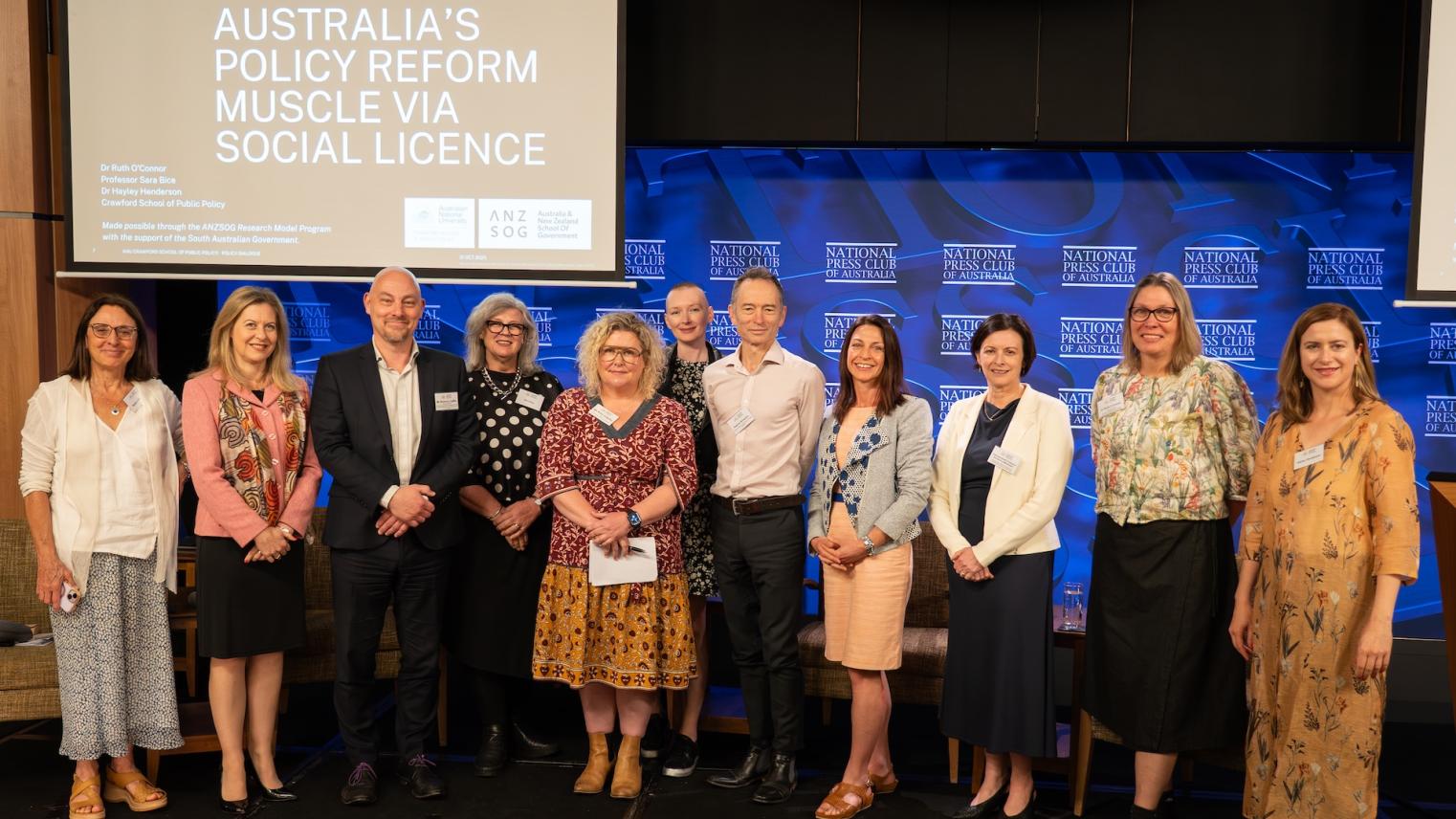Briefing Breakfast: Getting the Job Done – Social Licence for Major Policy Reform

At the recent Briefing Breakfast event, an engaging panel discussion titled “Strengthening Australia’s Policy Reform Muscle via Social Licence” brought together leaders from across all three levels of government — local, state, and federal — to explore how trust underpins successful reform.
The discussion was chaired by Distinguished Professor Renée Fry-McKibbin, a leading economist at the ANU Crawford School of Public Policy and Fellow of the Academy of Social Sciences in Australia, who has advised governments on international macroeconomics and financial market shocks.
She was joined by Dr Rachel Bacon, Deputy Commissioner for Integrity, Reform and Enabling Services at the Australian Public Service Commission, who has led major reforms across regulation, national security, and organisational change. Professor Sara Bice, Co-Founder and Director of the Institute for Infrastructure in Society at the ANU Crawford School, contributed her expertise in managing the social and environmental impacts of major projects. Brenton Caffin, Executive Director of Economic Environment & Infrastructure Policy in the South Australian Department of the Premier and Cabinet, brought insights from 25 years in public policy and innovation across 20 countries. Rounding out the panel, Kelly Grigsby, Chief Executive Officer of the Municipal Association of Victoria, shared perspectives from her extensive experience leading city-shaping initiatives and advocating for local government.
Despite their diverse roles, all agreed on one essential truth: major policy reform depends on trust — and trust, as Dr Bice put it, “has two main components: listening and promise-keeping.”
Dr Bacon emphasised the importance of putting people and businesses at the centre of policy work, highlighting the “untapped power of lived experience” and the need for genuine, deep listening when engaging with communities. She also spoke about the growing role of stewardship in the public service — the responsibility to maintain and pass on knowledge to future generations.
Brenton Caffin illustrated how enabling communities to interrogate data and information leads to more robust outcomes, while Kelly Grigsby advocated for “governing with, not for, communities,” encouraging a bottom-up approach rather than waiting for direction from above.
All panellists pointed to housing as a clear example where collaboration across local, state, and federal levels could deliver meaningful reform. As Dr Bacon noted, the success or failure of such efforts ultimately “comes down to relationships — and relationships build trust.”
The discussion captured the essence of the new report’s theme: that Australia’s capacity for major policy reform will strengthen only when government and community work together, grounded in mutual trust and shared purpose.
For more topics and events like this, explore our Executive Education courses here.